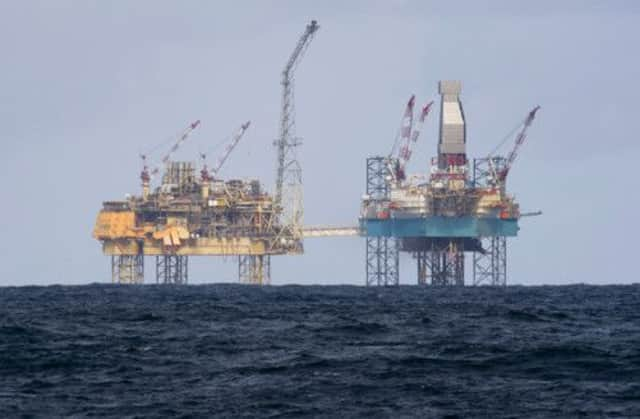Andrew Wilson: The ‘Big Lie’ about North Sea oil


He spoke of a lie so “colossal” that no-one would believe that someone “could have the impudence to distort the truth so infamously”.
In happier circumstances it found its way into Roald Dahl’s Matilda: the insanely vile headmistress of the school, Miss Trunchbull, is so outrageously cruel to the pupils that they think if any of their number were to report her it could never be believed. And it is picked up across literature and song as well.
Advertisement
Hide AdAdvertisement
Hide AdWhat to do in the face of it is a conundrum to ponder. Will an equal and opposite assertion of the truth always win? Well Winston Churchill’s view was that “a lie gets halfway around the world before the truth has a chance to get its pants on”. And I guess you can see his point.
I have often thought about this when pondering what is probably the most obvious “Big Lie” in post-war domestic politics in our country: the official position on the handling, stewardship and prospects for North Sea oil.
It is not really a matter that requires much debate, happily, as that could be very tedious for us all. It is pretty much an incontrovertible as well as provable truth that the UK government and its political leadership has systematically and repeatedly set out to disguise the scale of the potential benefits of North Sea oil and gas over its lifetime. The evidence is all across the public record and infamously released confidential civil service memorandums. The McCrone report of 1974 is the most notable – it talked of the likelihood that an independent Scotland would have one of the strongest economies and public finances in Europe. This prediction looks very accurate on the evidence of what subsequently happened to Norway.
The political and policy response was to downplay the scale of the prospect and it has never stopped – even now, almost £300 billion of tax revenues later. “It won’t last, is uncertain, is volatile and could damage us just to manage the windfall.” You’ve heard all the versions of it.
Politically, in my estimation, the “grand lie” has stuck. I don’t believe that this argument plays at all in the voting intentions of the Scottish public, largely because the establishment megaphone has drummed its story into the popular consciousness and the independence case has too often played into it.
By constantly fighting over the terms of a future that can never be proved, the progressive case is left arguing about abstracts. Far better in my view to focus the story of oil on the evidence of possibly the single biggest public policy disaster in UK post-war history, which is the decision to squander rather than save the proceeds for all generations to come. The indolent stewardship is a provable policy disgrace and evidence of colossal mismanagement, while small independent Norway is an equal and opposite example of the opportunity for a different way.
So my advice to Yes campaigners would be to focus on the exposure of the waste to date, and the case for protecting future generations rather than blowing the windfall. It is truly ludicrous that the UK establishment continues to get away with its grand lie, but it does.
The risk of promising jam tomorrow on the back of it for the progressive case has always been that it plays to a sense of the unreal and unlikely about an abstract promise for the future, and this is always a problem in politics, even if it’s true. I have always said that there is no pot of black gold at the end of the independence rainbow but there is a toolbox. That is the whole point.
Advertisement
Hide AdAdvertisement
Hide AdSo I like the phrase now coined by the Scottish Government that oil is a “bonus not a basis” of the economic case for independence.
I always felt uneasy with an argument that life could somehow get free and easy without effort. In no walk of life is that the essence of any message of true independence, either personal or political. The real message of the history of oil is that it is far more likely that the resource would have been stewarded well for the long term by Scotland, as the economic and political history of both Norway and the UK demonstrates with clarity. The first succeeded where the latter has failed calamitously.
The economics of Scotland’s choice are quite easy to understand. Without oil we perform to the average of the UK and the best of any UK region outside the South-East. A mediocre batting average that can be so much better, but not a bad starting point. Add energy windfalls into the equation and the opportunity to replicate Norway’s saving, albeit on a smaller scale, remains to be achieved.
So let’s hear much less about the future of oil and much more of the reality of its mismanagement to date. And let’s use what airtime the positive case gets on issues that might swing the undecided and the sceptical, because in my humble estimation the future of North Sea oil isn’t one of them. «
Twitter: @AndrewWilsonAJW